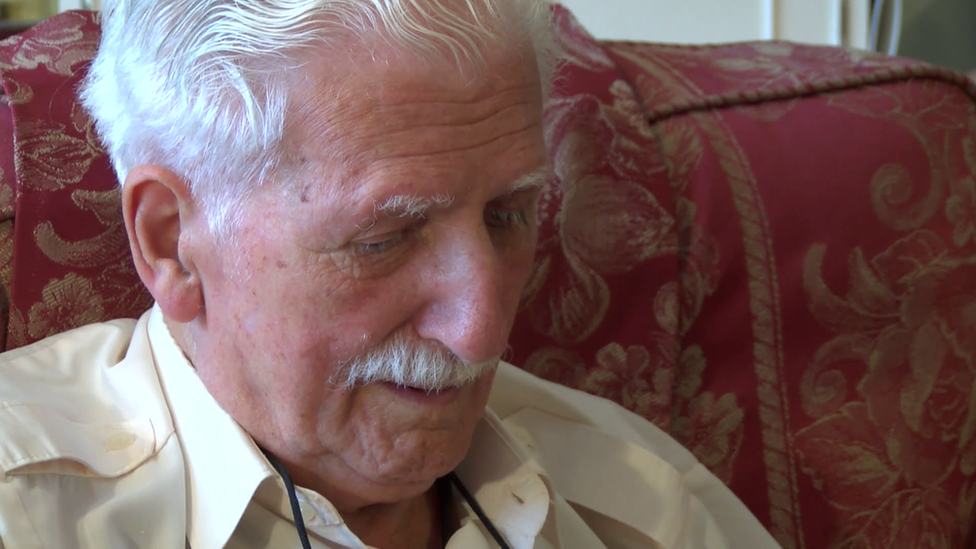The military grave restorers bringing the past back to life
- Published
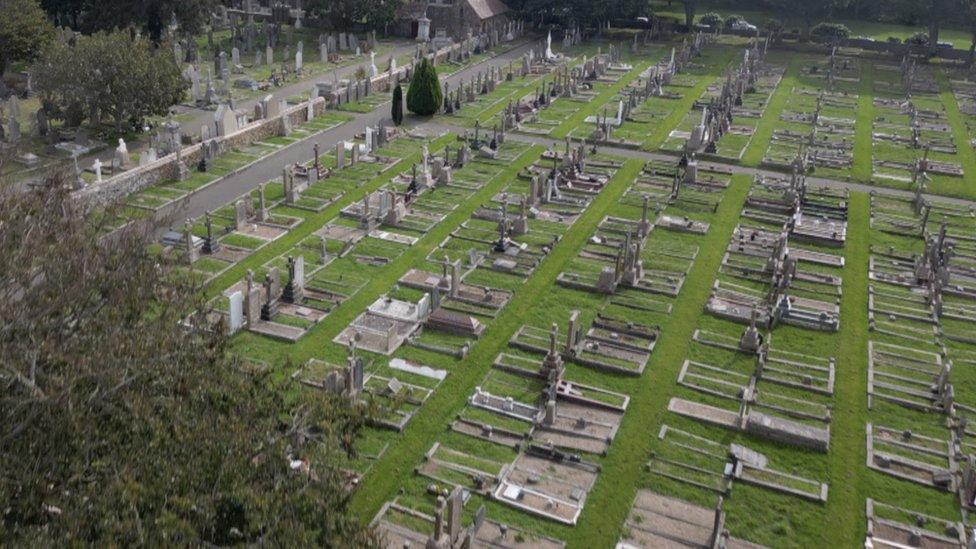
They thought there would be about 50 graves dating back to the 1800s but they found many more
St Saviour's churchyard on a quiet Autumn day. Under the trees, small red and green flags flutter among the mossy graves. They mark the last resting place of old soldiers who asked to be buried alongside their comrades in Jersey.
Steve Davies is digging beneath one fallen headstone while colleague Lee Dennis carefully reveals the weathered lettering of another.
Steve served with the Royal Green Jackets, an infantry regiment that can trace its history back to Waterloo and beyond.
Now in his 60s, and a qualified stonemason, Steve has dedicated his time to restoring long-forgotten military graves.
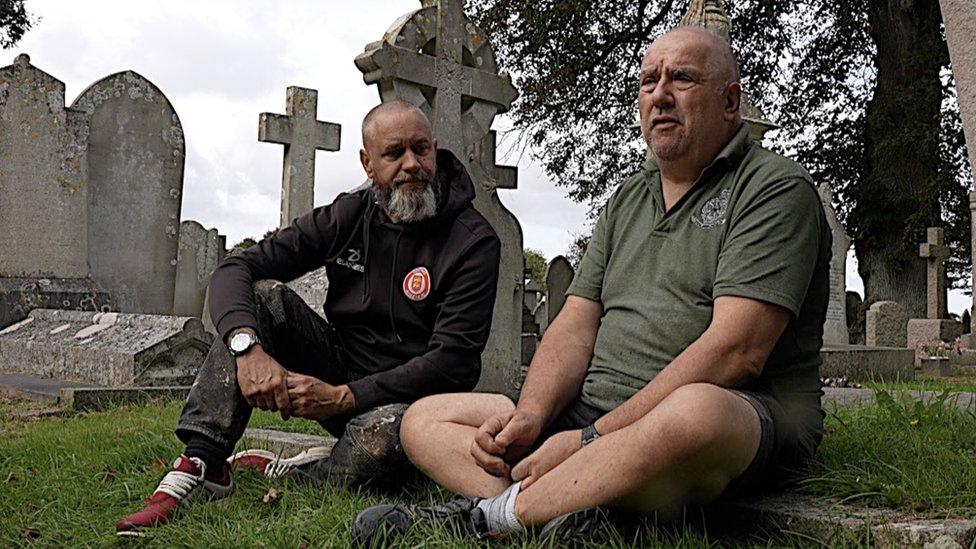
Steve (right) and Lee clean up graves and try to track down the descendants
He and Lee came to Jersey expecting to work on about 50 dating back to the 1800s - but they have found many more.
Men like Frederick Beatty, who served at Waterloo as a young cavalry lieutenant in the 7th Hussars, was hit in the face by a musket ball and had to learn to speak again.
He would have known this churchyard well - he later moved to Jersey and became Rector of St Saviour until his death in 1865 aged 72.
His family still have the sketches of soldiers and ruined villages that Frederick drew.
His great-great-great-grandson Richard Hemery, who now lives in Sussex, said: "Frederick had originally trained for the priesthood and he made a vow to God that if he survived Waterloo he would return to serve the church."
The veteran's one tonne headstone is now firmly upright again and Mr Hemery aims to visit as soon as he can, to finally read the inscription.
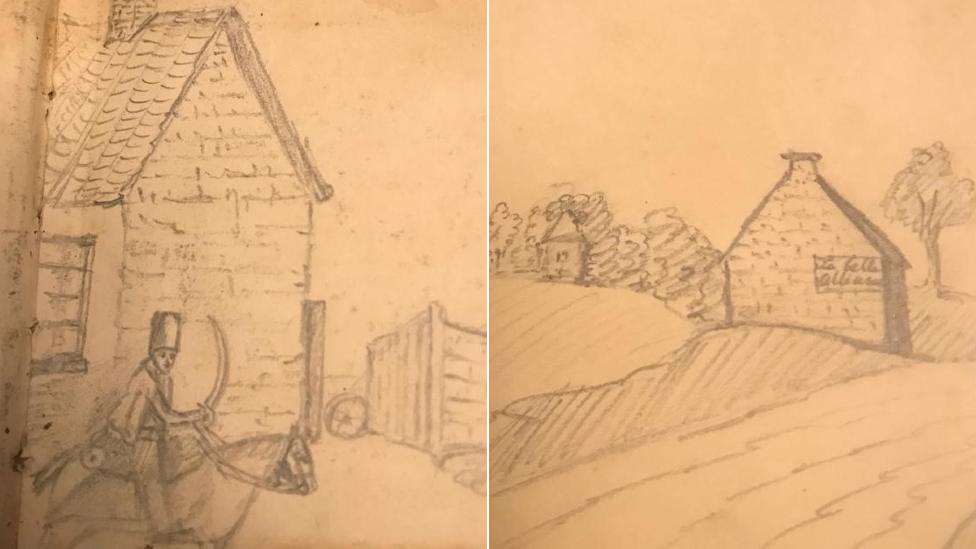
Frederick Beatty's sketches from the Waterloo campaign are still treasured by his family
Steve's mission goes beyond simply cleaning up and repairing the graves as the inscriptions give vital clues which help his team track down other surviving relatives.
"I'm really interested in Waterloo and the Peninsular War," he said. "Normally the people who work with me have to help trace surviving family members.
"But in this case we were hugely helped by the work carried out by a more recent rector of St Saviour and current parishioners."
Another headstone, now gleaming white in the afternoon sunshine, belongs to Lt Archie Stewart who was a company commander in the 75th Regiment of Foot.
He saw action in the bitter fighting around La Haye Sainte farmhouse at Waterloo and his great-great-grandson has followed the military path.
Maj Gen Mike Scott was awarded the Distinguished Service Order after leading the Scots Guards at the Battel of Mount Tumbledown in the Falklands War but he is especially proud of another set of medals displayed in his London home.
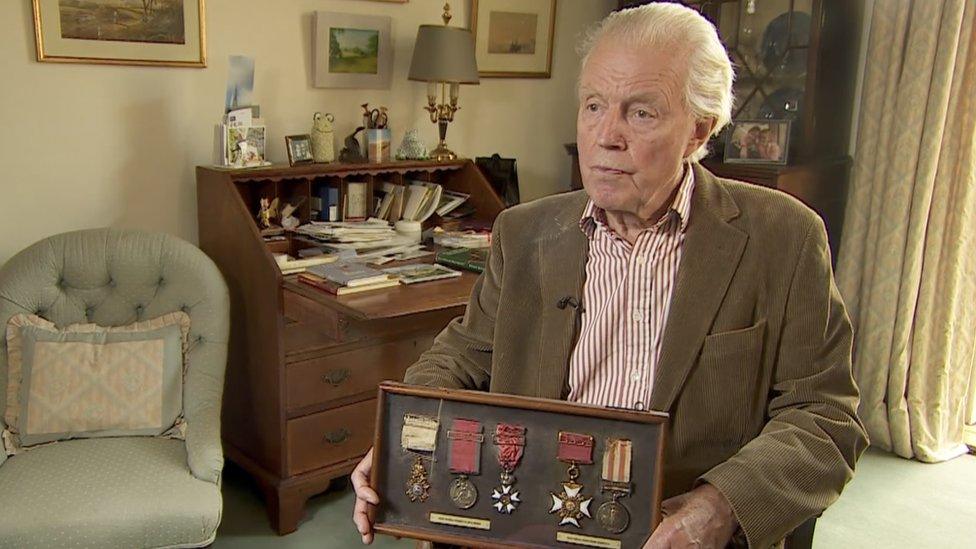
Maj Gen Mike Scott said graves were a source of incredibly interesting stories
They include Archie Scott's named Waterloo award and another that's been the subject of much family debate - A French Legion d'Honneur.
"Family myth is that Archie was given this by a dying French officer when he gave him a drink of water," Gen Scott said.
"I think it's more likely to be a souvenir snatched from a dead Frenchman after the battle," he added.
Praising Steve's restoration work, Gen Scott urged people to pay attention to the military graves that are so often forgotten but which have so much to tell us.
He said: "I'm an enormous believer in what you might call the narrative of gravestones, particularly military graves.
"If you take the trouble to look closely at headstones you can find enormously interesting stories."
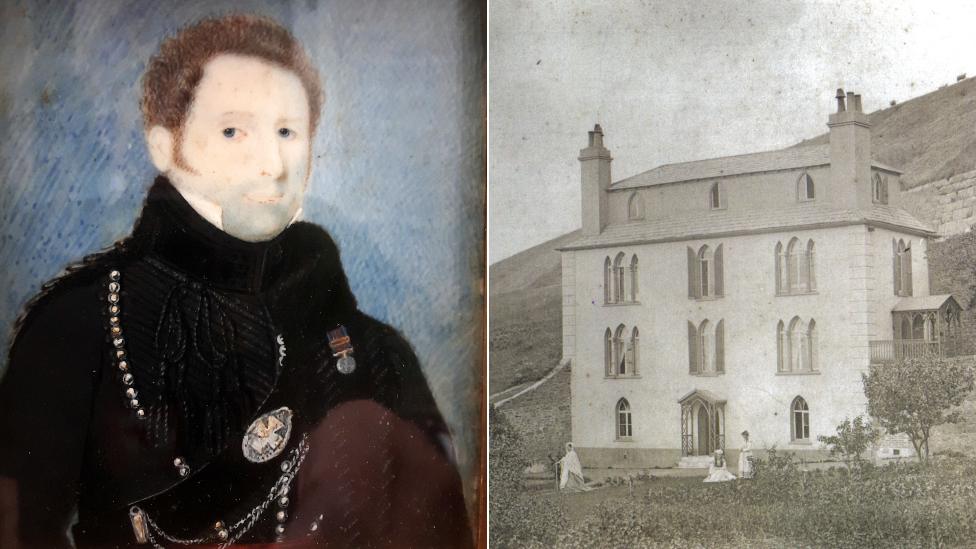
Archie Stewart in uniform and the house in Jersey in which he lived
Tracing those stories can be challenging.
Military graves dating from World War One and Two are tended by the Commonwealth War Graves Commission but older graves rely on individual parishes and volunteers and keeping up with nature is a huge task.
Back in St Saviour, Steve and Lee have some visitors.
The descendants of Paymaster Isaac Buxton, who served in the Peninsular War ahead of Waterloo, have come to see his newly-cleaned headstone.
"Absolutely stunning" was their verdict.
Four time great-granddaughter Catherine said: "The Buxtons have always been in the military but we had no idea this grave was here."
As the sun sets, Steve and Lee sit in the shade with their sandwiches.
"The trouble is that once I start I can't stop," Steve said. "I get into a graveyard, I drop the clutch, get into top gear, and I'm off."
Lee joined the team after the sudden death of his son Harry, who was just 11 years old, last Christmas.
He said the work had been a way of moving on and finding new purpose.
"I still struggle mentally with Harry's death but I find that when I'm cleaning a grave it's a great focus of my energy," he said.
"I think about the parents and, if I find a child's grave, I have to clean it. It has really helped me."
With that they pack away their tools and set off for their next mission.

Follow BBC Jersey on X (formerly Twitter), external and Facebook, external. Send your story ideas to channel.islands@bbc.co.uk, external.
Related topics
- Published28 September 2020
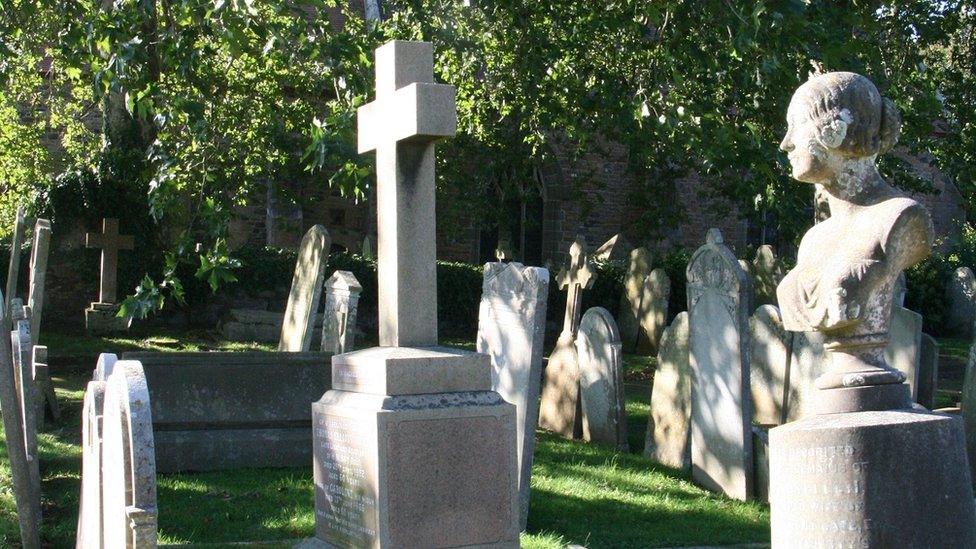
- Published30 May 2018
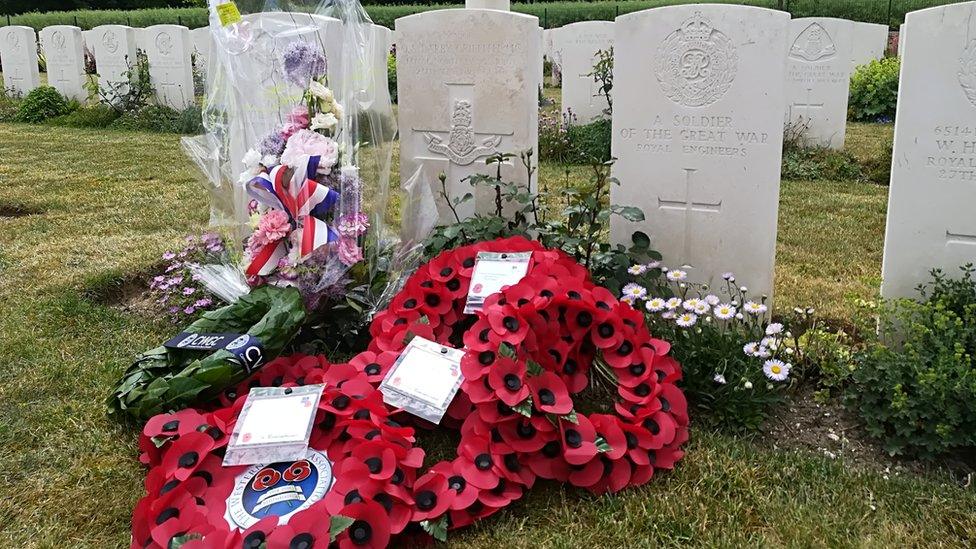
- Published28 September 2015
